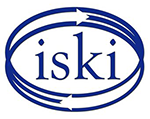Inhibiting Factors for Collaborative Water Governance: A Case Study of Mount Merapi Ecosystem in Yogyakarta, Indonesia
DOI:
https://doi.org/10.12928/channel.v11i1.225Keywords:
collaborative water governance, water crisis, Merapi, YogyakartaAbstract
The ecosystem around Mount Merapi, Indonesia, has many potential water sources. Still, poor management and a decrease in springs may lead to a water crisis in 2029 that could affect millions of residents in Yogyakarta, Indonesia. This study aims to identify the inhibiting factors for collaborative water governance under the threat of a water crisis. This research used qualitative descriptive research with data collected through interviews, documents, and observations. The analysis involved data reduction, presentation, and conclusion drawing/verification to explore Yogyakarta's water management aspects. The study suggests that collaborative water governance involving multiple stakeholders, including non-government actors, is crucial for effective water management. The local government dominates water management, while private and community groups have minimal involvement. There is a need for more specific regulations that comprehensively regulate water management and conservation efforts in the regions. Water management in Yogyakarta is classified under traditional governance due to the limited involvement of non-government actors and the minimal participation space provided by the regional government. A comprehensive regulation is needed to address water conservation, and complete collaboration among stakeholders is necessary to overcome obstacles in the water management crisis.
References
Araral, E., and Wang, Y. (2013) Water Governance 2.0: A Review and Second Generation Research Agenda. Water Resour Manage 27, 3945–3957. https://doi.org/10.1007/s11269-013-0389-x
Arikunto, S. (2005). Prosedur Penelitian Suatu Pendekatan Praktek. Rineka Cipta: Jakarta. ISBN: 978-979-518-998-5
Baker, K., and Cohen, A. (2011). Collaborative Water Governance and Sustainable Water Management for Canada’s Natural Resource Sectors. Report to the National Round Table on the Environment and the Economy. Retrieved from https://www.academia.edu/36492081/Collaborative_Water_Governance_and_Sustainable_Water_Management_for_Canada_s_Natural_Resource_Sectors
Basco-Carrera, L.; Meijers, E.; Sarısoy, H.D.; ̧Sanli, N.O.; Co ̧skun, S.; Oliemans, W.; van Beek, E.; Karaaslan, Y.; Jonoski, A. (2018). An adapted companion modeling approach for enhancing multi-stakeholder cooperation in complex river basins. The International Journal of Sustainable Development and World Ecology. 25, 747–764. DOI: 10.1080/13504509.2018.1445668
Blanc, S., Lingua, F., Bioglio, L., Pensa, R., Brun, F., & Mosso, A. (2018). Implementing Participatory Processes in Forestry Training Using Social Network Analysis Techniques. Forests, 9(8), 463. MDPI AG. Retrieved from http://dx.doi.org/10.3390/f9080463
Cresswell, J.W. (2014). Research Design: Qualitative, Quantitative, and Mixed Methods Approaches. SAGE Publications. ISBN 978-1-4522-2609-5
Donoso, G. (2018). Overall Assessment of Chile’s Water Policy and Its Challenges. In Water Policy in Chile; Springer International Publishing: Berlin. 209–219. DOI: 10.1007/978-3-319-76702-4_14
Endaryanta, Erwin, Politik Air di Indonesia. Polgov UGM, Yogyakarta, 2007.
Havekes, H., et al. l. 2013. Building Blocks For Good WaterGovernance. Water Governance Centre (WGC) Retrieved from http://watergovernance.s3.amazonaws.com/files/P085-01-16-006-eindpubBB.pdf
LEAP UNEP. (2019). Law No. 17 of 2019 on Water Resources. Retrieved from https://leap.unep.org/countries/id/national-legislation/law-no-17-2019-water-resources
Maharani, Y. (2012). Strategi Komunikasi Pembangunan Dalam Meningkatkan Eksistensi Pasar Tradisional (Study Deskriptif Kualitatif Tentang Pelaksanaan Strategi Dinas Pengelolan Pasar (DPP) Pemerintah Kota Surakarta Dalam Meningkatkan Eksistensi Pasar Tradisional Nusukan, Banjarsari). Doctoral dissertation, Universitas Muhammadiyah Surakarta.
Miles, M. B. & Huberman, M. (1992). Analisis Data Kualitatif. Jakarta: Penerbit. Universitas Indonesia. ISBN: 9794561037
Moleong, Lexy. (2013). Metodologi Penelitian Kualitatif. Bandung: PT. Remaja Rosdakarya. ISBN: 979-514-051-5
Nastain, M., & Nurdiarti, R. P. (2022). Political Social Responsibility of Council Members in Implementing Public Policy: Case Study of Regional Parliamentarians of Purwodadi Regency in 2020. CHANNEL: Jurnal Komunikasi, 10(2), 149–156. https://doi.org/10.12928/channel.v10i2.221
Pozzoli, S., Landriani, L., Lepore, L., Romano, R. (2014). Governance and Performance of Water Utility Firms. Springer. DOI: 10.1007/978-3-319-02645-9
Risky, T., Salim, M., Marta, R. F., & Longani, K. D. (2022). Implementation of CSR Program for Clean Water Well Development by PT. Chevron Pacific Indonesia to The Sakai Tribe Community. CHANNEL: Jurnal Komunikasi, 10(1), 1-8. http://dx.doi.org/10.12928/channel.v10i1.21982
Rogers, P & Hall, A W. (2003). Effective Water Governance. Global Water Partnership Technical Committee (TEC). Printed by Elanders Novum, Sweden 2003. First printing, February 2003. ISBN: 91-974012-9-3
Salim, M., Pangestu, S., Barykin, S., Longani, K. D., Farihanto, M. N. (2022). Communication Patterns of The Mangunan District Government to The Community In Managing Village Tourism Potentials. ASPIRATION Journal. 3 (1), 1-20. https://doi.org/10.56353/aspiration.v3i1.46
Sugiyono. (2014). Metode Penelitian Kuantitatif Kualitatif dan R & D. Alfabeta: Bandung. ISBN: 979-8433-64-0
UN-Water Paper. (2014). A Post-2015 Global Goal for Water: Synthesis of key findings and recommendations from UN-Water. Retrieved from https://www.un.org/waterforlifedecade/pdf/27_01_2014_un-water_paper_on_a_post2015_global_goal_for_water.pdf
Ummah, M. & Kusumah, R. I. (2020). Kajian Teoritis Water Governance Untuk Pengelolaan Air di Indonesia. JISIPOL: Jurnal Ilmu Sosial Dan Ilmu Politik, 4(1), 29–51. Retrieved from https://ejournal.unibba.ac.id/index.php/jisipol/article/view/259
Downloads
Published
How to Cite
Issue
Section
License
Copyright (c) 2023 Sri Lestari Harjanta, Dyaloka Puspita Ningrum

This work is licensed under a Creative Commons Attribution-ShareAlike 4.0 International License.






